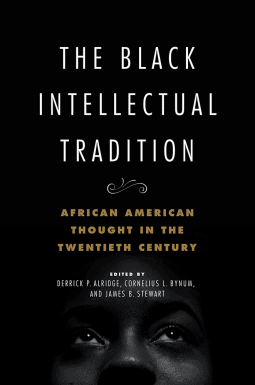“The Black Intellectual Tradition” is a collection of fascinating essays which “concentrate on the ideas that Black artists and intellectuals, performers and protest activists, institutions and organizations, and educators and religious leaders developed to fight against the persistent waves of racial oppression sweeping over generations of Black people in the United States. Indeed, these ideas animate the long struggle of Black people for equal justice.” They aren’t light or easy reads but rather in-depth and thought-provoking. They cover history as well as reflecting on the current day, post-Trump.
I found the reflections the impact of music, art and the Greek-lettered organisations especially interesting. The essay on Obama was insightful and articulates well the mix of emotions, politics and challenges experienced during his presidency. This isn’t a book in which you will agree with everything, it is written to challenge and cover the full spectrum of opinion and it does that!
At times, I found the writing style of a contributor heavy or overburdened with descriptors but, on balance, I thoroughly enjoyed it. It is a four out of five on the enJOYment and, if this is something you’d like to expand your knowledge on, I highly recommend it.
I received a complimentary copy of the book from the University of Illinois Press through NetGalley. The opinions expressed in this review are completely my own.

From the back cover:
From 1900 to the present, people of African descent living in the United States have drawn on homegrown and diasporic minds to create a Black intellectual tradition engaged with ideas on race, racial oppression, and the world. This volume presents essays on the diverse thought behind the fight for racial justice as developed by African American artists and intellectuals; performers and protest activists; institutions and organizations; and educators and religious leaders. By including both women’s and men’s perspectives from the U.S. and the Diaspora, the essays explore the full landscape of the Black intellectual tradition. Throughout, contributors engage with important ideas ranging from the consideration of gender within the tradition, to intellectual products generated outside the intelligentsia, to the ongoing relationship between thought and concrete effort in the quest for liberation.
Expansive in scope and interdisciplinary in practice, The Black Intellectual Tradition delves into the ideas that animated a people’s striving for full participation in American life.
Contributors: Derrick P. Alridge, Keisha N. Blain, Cornelius L. Bynum, Jeffrey Lamar Coleman, Pero Gaglo Dagbovie, Stephanie Y. Evans, Aaron David Gresson III, Claudrena N. Harold, Leonard Harris, Maurice J. Hobson, La TaSha B. Levy, Layli Maparyan, Zebulon V. Miletsky, R. Baxter Miller, Edward Onaci, Venetria K. Patton, James B. Stewart, and Nikki M. Taylor

